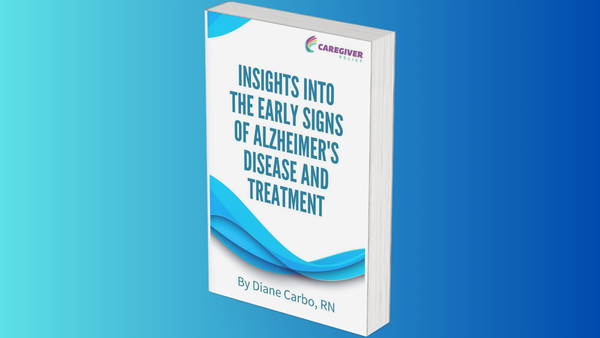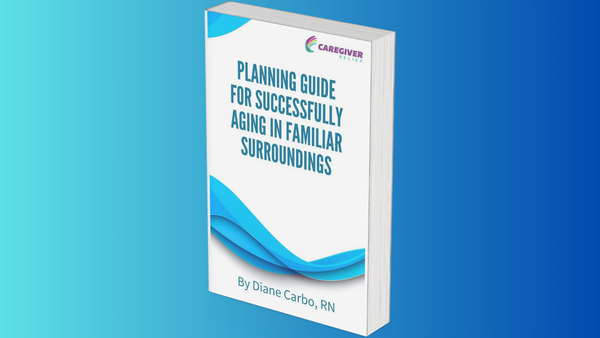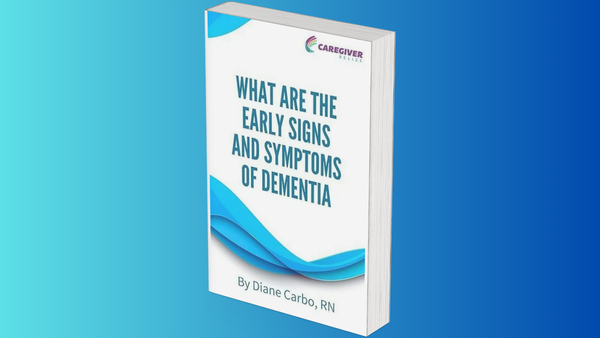Can Ativan Cause Hallucinations?

Introduction to Ativan
Ativan (lorazepam) is a type of medicine called a benzodiazepine. It is used to treat anxiety, panic attacks, seizures, and other mental health conditions. It is a commonly prescribed medication in the United States, often used short-term to manage the intensity of symptoms associated with psychological disorders. People may search for information on whether or not Ativan can cause hallucinations as they want to be aware of any possible side effects.
Benzodiazepines work by targeting the brain’s natural calming messenger, gamma-aminobutyric acid (GABA). By increasing the activity of GABA in the brain, Ativan helps to reduce levels of anxiety, relax the body, and induce sleep.
Although Ativan is an effective medication, it can cause certain side effects, including drowsiness, confusion, fatigue, and impaired coordination. It is important to be aware of how Ativan can affect you so that you can take appropriate precautions if you're using it to manage anxiety and other mental health issues.
What are Hallucinations?
Hallucinations are perceptions or experiences that are not real. They can involve any of the senses, such as hearing, seeing, tasting, touching, or smelling. Hallucinations can be caused by a wide variety of things, ranging from mental illness to substance use. It is important to note that hallucinations are more than just seeing or hearing things that are not there—they can also involve sensations in the body, such as feeling like something is crawling on the skin.
How are Hallucinations Related to Ativan?
Ativan (lorazepam) is a type of benzodiazepine medication prescribed to treat anxiety and certain types of seizures. Ativan works by affecting the central nervous system, resulting in sedative effects. While Ativan helps alleviate some of the symptoms associated with anxiety and seizures, it can also cause side effects such as confusion or impaired thinking, and in some cases, visual and auditory hallucinations. In fact, the Food and Drug Administration has issued warnings that Ativan can cause hallucinations in some users.
Ativan-induced hallucinations can occur in someone without a history of mental illness, as a result of an unusually large dose of Ativan, when interacting with other substances, or in those more vulnerable to experiencing hallucinations.
Role of Ativan in Causing Hallucinations
Hallucinations are changes in a person’s perception of reality. They can involve seeing, hearing, feeling, smelling or tasting things that are not actually there. It can be a very frightening and uncomfortable experience. Ativan is a medication used to treat anxiety and insomnia. It is a benzodiazepine, which are medicines that act on chemicals in the brain to produce a calming effect.
Ativan has been linked to causing hallucinations in some people. Studies have found that when taken in higher than recommended doses, Ativan may increase the risk of experiencing a hallucination. Additionally, when combined with other medications, the risk of hallucinating increases. People with a history of mental illness or existing mental health conditions have an increased risk of experiencing hallucinations while taking Ativan.
It is important to note that having hallucinations while taking Ativan does not mean that Ativan is the sole cause. Hallucinations can be caused by a variety of factors and should always be discussed with a doctor. It is also important to note that Ativan is an effective treatment for anxiety and insomnia when taken properly.
Risk Factors Associated with Ativan Use
Ativan is a potent medication and, like all drugs, it can have significant side effects. It is important to understand the potential risk factors associated with using Ativan so that proper precautions can be taken. There are a few possible risk factors for developing Ativan-induced hallucinations.
The first is that Ativan has been known to interact negatively with certain other medications. Combining Ativan with certain psychotropic drugs, such as certain antidepressants or antipsychotics, may increase the risk of developing hallucinations. It is important to discuss all medications you are taking with your doctor before taking Ativan.
Another risk factor is age. The older someone is, the greater the risk of developing Ativan-induced hallucinations. Proper monitoring and dosing is therefore important when prescribing Ativan to older patients.
Finally, those who have a history of mental health issues, especially schizophrenia or bipolar disorder, may also be at increased risk for developing Ativan-induced hallucinations. If this applies to you, it is best to discuss it with your doctor before starting Ativan.
It is important to be aware of the risks associated with using Ativan. By understanding these risk factors, you can take the necessary steps to minimize them.
Diagnosing Ativan-Induced Hallucinations
Ativan-induced hallucinations can be difficult to identify and diagnose. Although there is no single test to definitively diagnose Ativan-induced hallucinations, doctors may use a combination of physical exams, laboratory tests, imaging scans, psychological evaluations, and patient interviews to determine whether a person is experiencing these hallucinations.
Upon first examining a patient, the doctor will ask questions about their medical history, symptoms, current medications, and lifestyle to help narrow down a diagnosis. Additionally, the physician may order a number of laboratory tests to check for any underlying medical conditions or substances that may be causing the hallucinations. This can include blood tests, urine tests, or a spinal tap to analyze the cerebrospinal fluid.
Imaging scans such as MRI or CT scans may also be used to rule out any physical abnormalities in the brain that may be contributing to the hallucinations. Finally, psychological evaluations may be conducted to determine if any mental disorders are present that could be responsible for the hallucinations.
Once all of the tests are complete, the doctor will review all of the findings and make a diagnosis based on the patient’s information. If Ativan is identified as the cause of the hallucinations, then the doctor can suggest appropriate treatments.
Treatment of Ativan-Induced Hallucinations
Ativan-induced hallucinations can be a distressing experience, but thankfully there are treatments and medications available to help manage the symptoms. Treatment options vary depending on the individual and their situation, but common treatments involve lifestyle modifications, medications, or supplements.
Lifestyle Modifications
It's important to manage stress levels when dealing with Ativan-induced hallucinations. This means avoiding situations that could be sources of stress and finding ways to relax, such as exercise, meditation, or yoga. Additionally, it's important to get adequate and regular sleep, as poor sleep hygiene can worsen hallucinations.
Medications
Some medications are available to treat Ativan-induced hallucinations, either on a short-term or long-term basis. Antipsychotics are often used to treat the symptoms of Ativan-induced hallucinations, as they reduce the intensity of the hallucination by blocking dopamine receptors in the brain. In addition, certain antidepressants and anxiolytics may also be prescribed.
Supplements
In some cases, natural supplements can be used to help alleviate the symptoms of Ativan-induced hallucinations. Some common supplements include: omega 3 fatty acids, magnesium, and vitamin D. It is important to speak with a doctor or other medical professional before taking any supplements, as they can interact with certain drugs or have harmful side effects.
Long-Term Management of Ativan-Induced Hallucinations
Ativan-induced hallucinations can be difficult to manage over the long term. There are steps you can take to avoid triggers and reduce the risk of having hallucinations caused by Ativan. It is important to discuss any changes you make to your medication with a healthcare professional before making any adjustments.
The first step in managing Ativan-induced hallucinations over the long term is to talk to a healthcare professional about creating an individual plan to minimize the risk of triggering hallucinations. A doctor or therapist can help identify potential triggers such as stress, lack of sleep, and certain medications or substances. Depending on what is causing the hallucinations, they can suggest different treatments or lifestyle adjustments.
It is also important to seek out support. Support groups can be a great way to connect with people who have similar experiences. Additionally, talking to family and friends can help to manage stress and provide emotional support.
When taking Ativan, it is important to take it exactly as prescribed by a healthcare professional. Taking too much or too little of the drug can increase the risk of side effects, including hallucinations. Also, it is important to not mix Ativan with alcohol or other drugs, as this can produce unpredictable reactions.
Finally, proper self-care is essential in managing Ativan-induced hallucinations. Getting enough quality sleep and exercising regularly can reduce the risk of hallucinations. Additionally, eating a balanced diet and finding activities to do that bring joy can improve overall wellbeing.
Preventing Ativan-Induced Hallucinations
Ativan can cause hallucinations, but there are steps you can take to reduce the risk. Here are some tips for preventing Ativan-induced hallucinations:
- Avoid taking any other drugs or medications. Many drugs can interact with Ativan and increase the risk of hallucinations.
- Minimize your stress levels. Stress can lead to increased anxiety and therefore an increased risk of hallucinations.
- Manage your sleep. Make sure to get adequate sleep and reduce activities that could interfere with a good night’s rest. Poor sleep can lead to greater anxiety and an increased risk of hallucinations.
Following these tips may help reduce your risk of experiencing Ativan-induced hallucinations.
When to Seek Help
If you have been taking Ativan and begin to experience hallucinations, it is important to seek medical help. More frequent or intense hallucinations may be a sign of a deeper issue that should be addressed by a medical professional. It is also important to seek help if you experience any other serious side effects that are not normal.
If your hallucinations become more severe or prolonged, seek immediate medical attention. If the hallucinations are making it difficult for you to function normally, it is important to contact your doctor for further evaluation.
Talk to your doctor about other potential risks associated with Ativan use, and if it is safe for you to continue taking the drug. Your doctor may be able to suggest adjustments in dosage or different treatments to reduce the possibility of further side effects.
Ativan, a prescription medication used to treat conditions such as anxiety, can cause hallucinations in some people. This guide covers the causes of hallucinations associated with Ativan, potential risk factors, the diagnosis and treatments available, and strategies for prevention and long-term management.
Hallucinations are a symptom of an underlying mental health issue and can involve hearing, seeing, feeling, or smelling something that is not actually there. There are many possible causes of hallucinations, and it is important to seek medical advice if one becomes more frequent or intense.
Ativan has been linked to causing hallucinations in some cases, particularly when taken in high doses or combined with other drugs. Those who are taking Ativan should be aware of the potential risks and report any concerning symptoms to their doctor. Risk factors that may increase the chances of experiencing Ativan-induced hallucinations include age, alcohol use, and underlying mental health conditions.
If one suspects they have Ativan-induced hallucinations, a doctor will assess their symptoms, consider the dosage and duration of treatment, and may order additional tests or procedures. Treatment and medications available for Ativan-induced hallucinations include antipsychotics, benzodiazepines, and antidepressants.
To help manage Ativan-induced hallucinations over the long-term, one should avoid certain drugs, maintain healthy lifestyle habits such as regular exercise and nutritious diet, and properly managing sleep. Additionally, seeking support from family and friends, or joining an online or in-person support group, can also be beneficial.
It is important to seek help if one notices the onset of Ativan-induced hallucinations becoming more frequent or intense. With the right support and medical advice, those suffering from Ativan-induced hallucinations can find relief and manage their condition safely and effectively.
You might also like this article:







